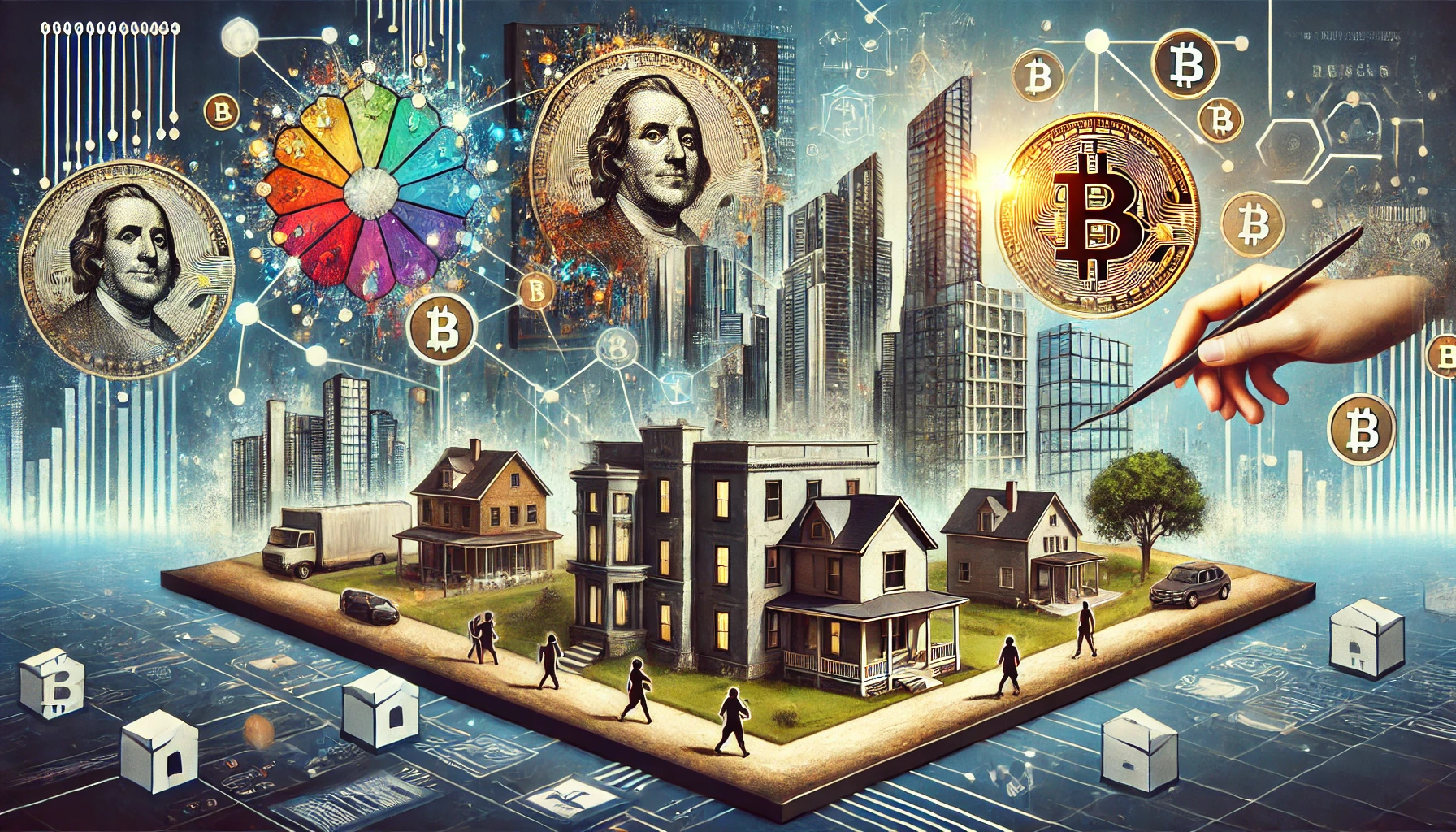From Art to Real Estate: How NFTs Are Disrupting the Concept of Ownership

The NFT Craze: More Than Just Digital Art
Ah, NFTs—those quirky digital assets that went from obscure tech geek talk to mainstream frenzy faster than you can say 'blockchain.' But while most people associate NFTs with pixelated images of apes or cats, they’re actually making waves far beyond the art world. Think real estate. Yes, your future dream home might just come with a little NFT on the side. Forget the idea that NFTs are only for bragging rights over owning digital art. We're talking about actual, tangible properties being tokenized into NFTs, opening the doors to fractional ownership, decentralized transactions, and much more. And no, this isn't a plot twist from a sci-fi movie.
Tokenizing Real Estate: Why Own 100% When You Can Own 10%
Let's get real for a moment—owning property is expensive. If you live in a major city, the prices are likely enough to make you cry a little inside. Enter NFTs and the concept of tokenizing real estate. Tokenization allows a property to be divided into smaller shares, and each share can be owned as an NFT. Imagine a luxurious beachfront property worth $10 million. Not ready to drop that kind of cash? No problem. With NFTs, you could own a fraction of that property—say, 10%—and still feel like a high roller. Plus, you could even trade your share on an NFT marketplace. It’s like owning stock in a company, but the company happens to be a swanky vacation home. Fractional ownership via NFTs is making real estate investment more accessible, while also creating a more liquid market for properties. This is huge because traditional real estate markets can be slow and cumbersome. But with NFTs, transactions can be completed in minutes rather than months. Just think of the closing time savings!
Decentralized Property Transactions: Goodbye, Middlemen
Now, let’s talk about one of the most annoying things about buying a house—middlemen. Realtors, escrow agents, title companies, lawyers... the list goes on. Every single one of them gets a piece of your pie. But with NFTs and blockchain technology, we’re looking at the possibility of decentralized property transactions. Essentially, you could bypass the need for intermediaries altogether. NFTs could streamline the entire process, automating smart contracts that ensure ownership is transferred once payment is made. Imagine buying a house with the same ease as you would buy a limited-edition sneaker drop online—only it’s a mansion. And there’s no one taking a percentage of your money for doing, well, not that much. Cutting out the middlemen not only speeds up the process but also reduces the overall cost of property transactions. Who wouldn’t want that?
Challenges and Considerations: Not All Sunshine and Rainbows
Of course, we can’t just dive headfirst into NFT real estate without addressing some concerns. First, there’s the legal aspect. Real estate laws vary widely depending on where you live, and integrating NFTs into the mix can complicate things. Not all governments are on board with the concept of tokenized property ownership yet. Plus, the technology itself, while innovative, is still in its infancy. There are risks involved, including security vulnerabilities, market volatility, and questions about how to handle disputes or legal challenges related to NFT real estate. Then there's the environmental impact of NFTs. Blockchain technology, particularly the proof-of-work systems used by many NFTs, is energy-intensive. While some platforms are moving toward greener solutions, it’s something to keep in mind. And finally, the market could be prone to speculation. Just like the digital art NFT craze saw prices skyrocket and then plummet, the same could happen in real estate. So, while there’s immense potential, it’s essential to approach NFT real estate with a balance of optimism and caution.
The Future of Real Estate: What’s Next?
So, where does this all leave us? NFTs are revolutionizing more than just art; they're shaking up the very concept of property ownership. The idea of owning a fraction of a high-end apartment in Manhattan or a villa in Tuscany is no longer a fantasy. With the growing adoption of blockchain technology, we’re likely to see more and more properties being tokenized. As the market matures, real estate NFTs could become as common as traditional property titles. In fact, you might even say we're on the brink of a real estate revolution. But what do you think? Would you buy a slice of real estate through an NFT, or are you sticking with the old-fashioned way of doing things?



